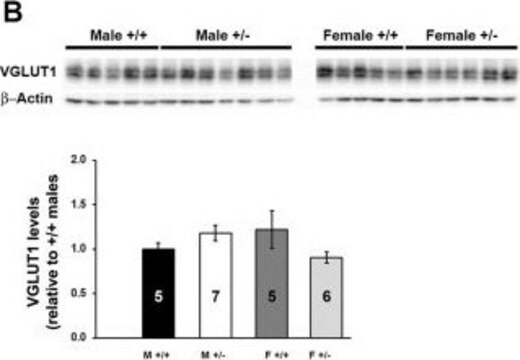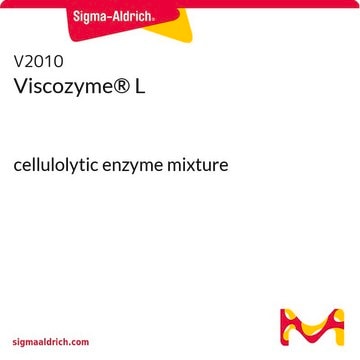MABT845
Anti-Cytokeratin-20 Antibody, clone XQ1
clone XQ1, from mouse
Synonym(s):
Keratin, type I cytoskeletal 20, CK-20, Keratin-20, K20
About This Item
Recommended Products
biological source
mouse
antibody form
purified antibody
antibody product type
primary antibodies
clone
XQ1, monoclonal
species reactivity
mouse
should not react with
human
packaging
antibody small pack of 25 μg
technique(s)
immunofluorescence: suitable
immunohistochemistry: suitable (paraffin)
western blot: suitable
isotype
IgMκ
NCBI accession no.
UniProt accession no.
target post-translational modification
unmodified
Gene Information
human ... KRT20(54474)
mouse ... Krt20(66809)
General description
Specificity
Immunogen
Application
Western Blotting Analysis: A representative lot detected Cytokeratin-20 in Western Blotting applications (Zhou, Q., et. al. (2003). Mol Biol Cell. 14(7):2959-71).
Cell Structure
Quality
Immunohistochemistry (Paraffin) Analysis: A 1:50 dilution of this antibody detected Cytokeratin-20 in mouse colon tissue sections.
Target description
Physical form
Storage and Stability
Other Notes
Disclaimer
Not finding the right product?
Try our Product Selector Tool.
Certificates of Analysis (COA)
Search for Certificates of Analysis (COA) by entering the products Lot/Batch Number. Lot and Batch Numbers can be found on a product’s label following the words ‘Lot’ or ‘Batch’.
Already Own This Product?
Find documentation for the products that you have recently purchased in the Document Library.
Our team of scientists has experience in all areas of research including Life Science, Material Science, Chemical Synthesis, Chromatography, Analytical and many others.
Contact Technical Service








